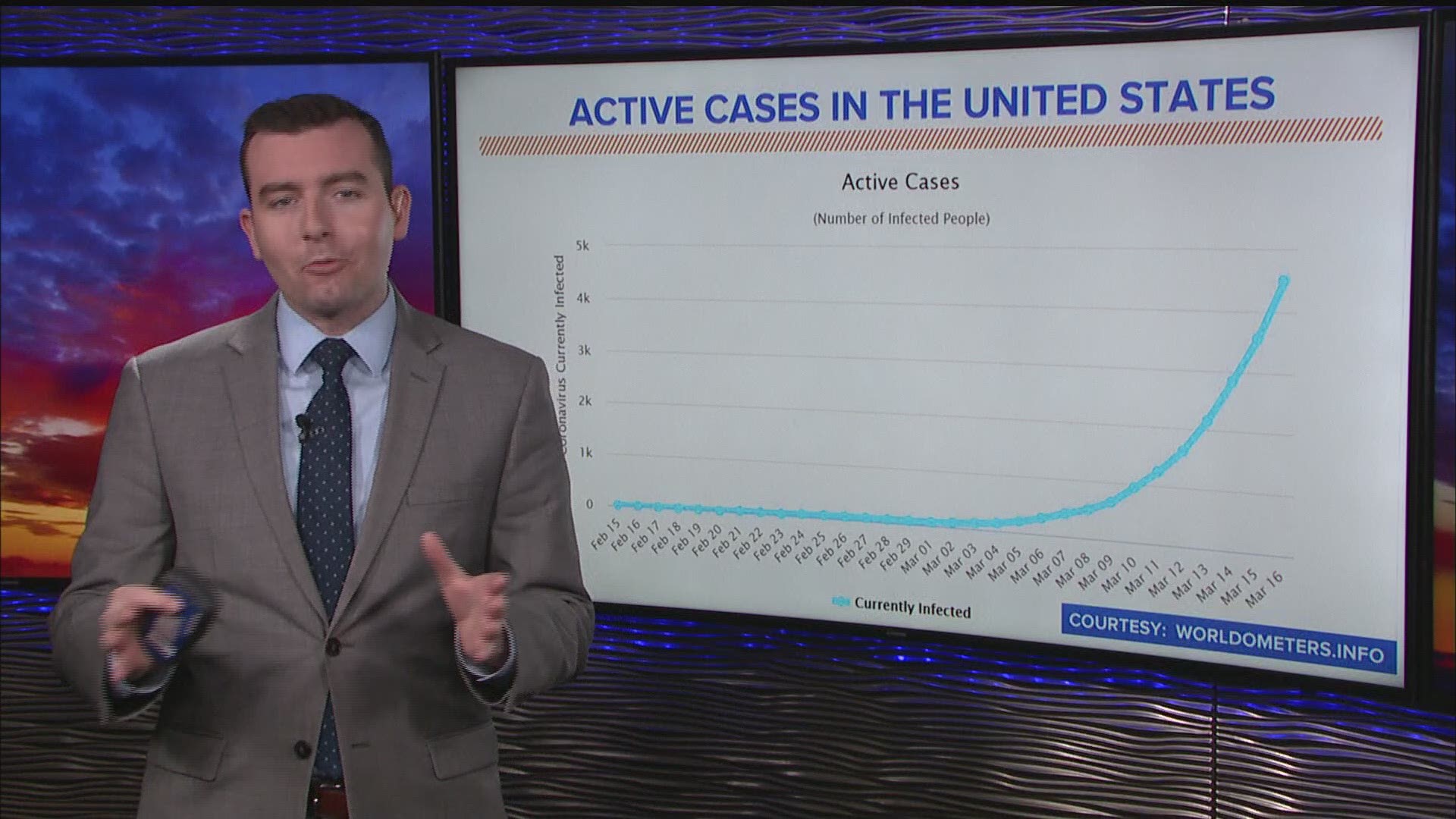WASHINGTON, D.C., USA — Editor’s note: You are hearing the term ‘flattening the curve’ as a way to stem the tide of coronavirus cases. The above video explains what that means.
U.S. Sen. Angus King (I-Maine) and 26 other U.S. senators are calling on President Trump to direct the Federal Emergency Management Agency (FEMA) to waive all cost-share requirements for states responding to the coronavirus pandemic.
States across the nation are facing severe budgetary limitations due to reduced revenue and growing costs associated with COVID-19 response efforts, including public health and economic responses to support citizens through the pandemic.
The senators wrote a letter to the president, urging him to increase the federal cost-share from 75 to 100 percent for emergency work associated with pandemic response.
“As the pandemic continues to spread, however, states are increasingly being put in impossible positions. Many state governments are slashing budgets and implementing layoffs at a time when Americans need support more than ever. These reductions are unsustainable and dangerous, and only the federal government has the capability to alleviate these concerns,” the Senators wrote.
On Monday, Gov. Janet Mills announced that the Consensus Economic Forecasting Commission (CEFC) and the Revenue Forecasting Coming (RFC) will convene off-cycle to examine the economic ramifications of the pandemic on the state government’s revenues. The CEFC and RFC are responsible for projecting revenues that the Administration and Legislature then use to determine the State’s budget.
The CEFC will meet in July, and the RFC will meet in August, which is three months sooner than they normally would convene.
“There is no question that the virus is impacting state revenues; the real question ultimately is by how much?” Mills said in a statement.
With Maine’s revenue depending heavily on tourism and more face-to-face businesses compared to most states, some models project Maine’s economic fallout from the coronavirus could be the worst in the nation.
“States and territories across the country are currently assuming overwhelming costs for COVID-19 response while coping with massive reductions in revenue due to economic slowdown,” the senators’ letter writes. “It is the federal government’s duty to aid these states in this critical hour. We cannot let them down.”
At NEWS CENTER Maine, we’re focusing our news coverage on the facts and not the fear around the illness. To see our full coverage, visit our coronavirus section, here: /coronavirus
NEWS CENTER Maine Coronavirus Coverage

